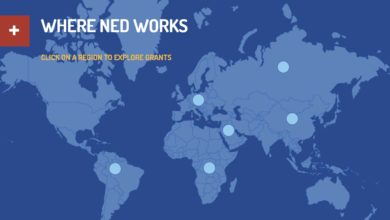On July 2, Mexican voters will go to the ballot boxes to elect the country’s next president. The two leading candidates are Felipe Calderón, from the conservative, U.S.-friendly National Action Party (PAN) of the current president, Vicente Fox, and Andrés Manuel López Obrador, of the traditionally left-leaning Democratic Revolution Party (PRD).
 Andrés Manuel López Obrador Photo: Jorge Rios |
López Obrador gained nationwide notoriety in 1995 as a leader of a series of protests in the state of Tabasco that shut down the government-operated oil wells. From there, he was elected mayor of Mexico City. His frequent denunciations of the country’s corporate elite and high-paid government officials have given him a hearing among the poor.
In 2004, López Obrador’s two rival parties, the PAN and the longtime ruling Institutional Revolutionary Party (PRI), led a campaign to have him indicted for illegally expropriating privately owned land. Under Mexican law, anyone on trial is barred from running for political office; the indictment would have terminated López Obrador’s campaign. What was López Obrador’s crime? He expropriated a strip of land to build a road to a hospital.
The campaign outraged the masses of Mexico, who denounced the right wing’s manipulations and rallied to López Obrador’s side. During Spring 2005, hundreds of thousands filled the streets of Mexico City in support of the mayor. Shortly thereafter, facing a deepening political crisis, President Fox appeared on television to announce that the Mexican government would no longer pursue the charges against López Obrador.
With the reputations of the PAN and the PRI even more marred by the scandal, López Obrador soared ahead in all pre-election polls.
Since then, however, López Obrador has slipped in the polls. In May, the PAN’s candidate, Felipe Calderón, had even moved into first place. Calderón relied on a series of right-wing advertisements comparing López Obrador to Venezuelan president Hugo Chávez.
On his part, López Obrador seems to have moderated the fiery populism that initially garnered him support. With the elections approaching, he has made explicit overtures to the business community.
Nonetheless, the outcome of the election will largely be determined by voter turnout. If the masses of Mexico, a country with 60 percent poverty, show up on Election Day, López Obrador is expected to win.
López Obrador’s political program could hardly be called radical or socialist. But the U.S. government is worried about the prospect of his victory. Although the PAN’s red-baiting campaign is sheer fantasy—López Obrador has pledged not to oppose globalization, but to make it work for Mexican capitalism—in some ways, it is completely understandable. López Obrador’s victory could represent a setback for Washington’s neoliberal vision for Latin America.
Neoliberalism and NAFTA
Since the collapse of the Soviet bloc, the United States has taken advantage of its position as the sole superpower to push through neoliberal free trade agreements with governments of oppressed countries across the globe. This project aims to eliminate all tariffs and duties that protect underdeveloped economies from naked competition with U.S. multinational corporations and agribusiness. It seeks to privatize publicly owned utilities and enterprises, inevitably putting them in the hands of U.S. or European firms.
The first major victory of the neoliberal crusade was the 1994 passage of the North American Free Trade Agreement, which eliminated all of Mexico’s barriers to U.S. capital and commodities, dramatically scaled back social programs and privatized most previously state-owned enterprises.
U.S. corporations have flooded Mexico with its own products, which are sold at lower prices. This has bankrupted smaller-scale agriculture and businesses. U.S. corporations began to employ larger numbers of low-paid workers in Mexico in a growing number of maquiladoras—factories infamous for low wages and brutal working conditions.
This trend of outsourcing production has had a disastrous impact on the U.S. industrial workforce and labor movement. And while bourgeois and White House economists praise NAFTA for raising the gross national product of Mexico, calling it a “middle-income” country, it has only exacerbated the country’s gross economic and social inequality.
Mexico is now the 10th largest economy in the world, second in Latin America to Brazil. It is one of the world’s five largest producers of oil. Yet more than half of the population lives under the official poverty line. This contradiction is a principal cause for increased emigration to the United States. Remittances—money sent by Mexicans living in the United States—are now a primary means of subsistence for many Mexicans.
 Farm workers protest outside Ministry of Agriculture, Distrito Federal, Mexico, Feb. 14, 2005. Photo: Notimex/Photo/Rocio ROJO/RRB/WAR |
The 1994 Zapatista rebellion in the southern state of Chiapas was launched the day NAFTA went into effect. Zapatista National Liberation Army (EZLN) leader Subcomandante Marcos called the agreement “a death sentence” for Mexico’s indigenous people.
But the Mexican government remains one of the staunchest allies of U.S. imperialism in Latin America. President Vicente Fox is one of the main champions of the Free Trade Area of the Americas, which would essentially expand NAFTA to the rest of the continent. That treaty has fewer and fewer supporters with each passing election in Latin America.
López Obrador’s program
López Obrador declares that he is no enemy of capitalism. But his victory could threaten to bury the FTAA as an agreement that encompasses virtually the whole western hemisphere. The U.S. imperialists are also trying to force agreements with individual countries as an alternative.
During the election campaign, he has repeatedly condemned the decade of “economic reform” of NAFTA for not improving the living conditions for millions. He does not call for repealing the treaty, as many on the Mexican left advocate. López Obrador simply suggests renegotiating a few of NAFTA’s particularly onerous agricultural provisions.
López Obrador has promised to reinvest the revenues generated by the state-owned oil company PEMEX back into social programs. Over the objections of the corporate media and the right wing, which depict such spending as “fiscally irresponsible,” López Obrador has shown a willingness to implement such programs as mayor.
But behind his campaign rhetoric against the country’s banking elite, he has employed pro-capitalist economic advisors to build a base of support within the business community. This double-speak is in part responsible for López Obrador’s eroding base of support among the poor.
It also reflects a certain reality within the Mexican capitalist class. As a weapon designed to benefit U.S. big business, NAFTA represents an assault on the less powerful Mexican owning class. These capitalists cannot afford to be the enemy of U.S. imperialism, but hope to renegotiate the terms of their relationship.
Mexico’s strategic role
Regardless of the extent to which López Obrador would challenge NAFTA, his victory would be widely perceived as a symbolic rejection of the pact. Beyond symbolism, however, there is of course an economic part of the equation that particularly worries U.S. capitalism.
Mexico is among the top five oil suppliers to the United States. In fact, the United States receives 85 percent of all Mexico’s exports.
Mexico, in turn, is a necessary dumping ground for overproduced U.S. commodities. Any turn towards economic independence or protectionism on the part of the Mexican government would send ripples through U.S. agribusiness, affect labor supplies, and effectively slice away an economy that for the last ten years has been understood as integral to the U.S. economy.
López Obrador has been likened to Brazilian President Luiz Inácio Lula da Silva and Argentine President Néstor Kirchner. It is an apt comparison. His program, like theirs, is not a rejection of the free-market model. Rather, it is an attempt to soften the effects of unrestrained capitalist exploitation on the masses while at the same time preserving capitalist relations. This current distinguishes itself from Washington’s “axis of evil”—Venezuela and Cuba—yet has opened bilateral trade agreements with these sworn enemies of U.S. imperialism.
This is another aspect of the emergence of a growing number of social-democratic governments in Latin America and growing unity among Latin American capitalists independent of U.S. imperialist interests.
It has led to a greater degree of economic integration among the Latin American nations. On April 29, Bolivian president Evo Morales joined his country with Cuba and Venezuela as a full participant in the Bolivarian Alternative for the Americas (ALBA), a strategic alliance to counter the FTAA.
The continued development of this trend—a separate economic entity no longer seen as the “backyard” of the United States—would mark a significant shift in the traditional international economic balance of forces.
In April of this year, Congressman Dan Burton, chairman of the House International Relations Sub-committee on the Western Hemisphere, was asked what he thought of Brazil’s trade agreements with U.S. rivals. In the tradition of centuries of colonial arrogance, he remarked, “We should always look at Latin America in relation to the Monroe Doctrine,” (Financial Times, April 4, 2006).
Although the U.S. government has largely avoided public statements on the elections, they are concerned that a López Obrador election could be an obstacle to their neoliberal plans for the whole continent.
U.S. fears mass struggle
But it is the awakening of the popular movements in Latin America that the U.S. government is more worried about. Mexico is no exception.
In the midst of the elections, the Zapatistas have embarked on a national struggle that they call “The Other Campaign.” They call for mobilizing the masses in opposition to the electoral parties and their candidates.
First launched with the “Sixth Declaration of the Lacandon Jungle” last year, the EZLN is supporting popular demonstrations, sit-ins and rallies in every state. They are urging the Mexican people to fight independently and to continue to struggle regardless of the July outcome.
Those independent struggles are becoming increasingly tense. On May 3, residents in the town of San Salvador Atenco, just north of Mexico City, staged a virtual rebellion against police attempts to shut down flower vendors. One teen was killed in street battles between riot police and angry residents.
Articles may be reprinted with credit to Socialism and Liberation magazine.






